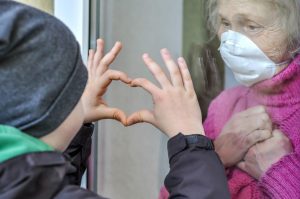Giardia Intestinalis Infections in Children

Outbreaks of diarrhea are extremely common among kids who spend time in childcare settings, but many parents don’t realize that these outbreaks are often caused by a parasite. According to the Centers for Disease Control and Prevention, Giardia intestinalis is the most common intestinal parasite disease in humans, infecting 6-8 percent of all children, especially children ages 1 to 9.
Children become infected with Giardia by swallowing the cysts of the parasite, which can be found in contaminated food, water, or on surfaces that have not been properly cleaned. Kids are also at risk if they come into contact with someone who has not properly washed their hands after using the bathroom or changing a diaper. Once infected, the child sheds cysts in his or her stool, further spreading the disease to everyone who comes into contact with cysts. The disease is more prevalent in the warm summer and fall months and is more common in northern states, although outbreaks can occur anywhere.
Common symptoms of Giardia infection include:
- Watery, foul-smelling diarrhea
- Stomach pain
- Nausea or vomiting
- Gas
- Poor appetite, sometimes leading to weight loss
- Fever is not a common symptom of this infection
Symptoms normally begin 1-3 weeks after a child is infected with the parasite. Some children who are infected with Giardia have no symptoms but can still spread the infection to others. In one study in a childcare setting, up to 75 percent of those infected with Giardia has no symptoms.
If you are concerned your child has Giardia, a visit to the pediatrician is in order. The pediatrician will likely test your child’s stool for the Giardia parasite. If the test is positive, your pediatrician may prescribe medication (most commonly metronidazole), which will help clear up the infection within 5-7 days. Untreated, symptoms can last up to four to six weeks. Dehydration is commonly associated with Giardia infection due to profuse diarrhea, so be sure to offer plenty of fluids.
To prevent the spread of disease, ensure that your child’s daycare workers practice good hand hygiene and frequently disinfect toys. You can do your part by encouraging your child to wash hands frequently with soap and water. Also avoid drinking water from streams, lakes, or ponds that may be contaminated with the parasite.
Sources:
- Centers for Disease Control and Prevention
- Giardia.
Gardner TB, Hill DR - Treatment of giardiasis
- Clin Microbiol Rev
- 2001 Jan;14(1):114-28
- Review.
RedBook Online, American Academy of Pediatrics - Giardia.
American Academy of Pediatrics - Giardia Intestinalis Infections.
Powered by Bundoo®










